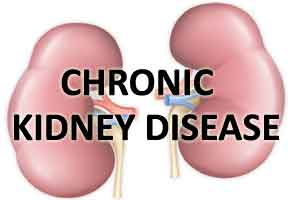- Home
- Editorial
- News
- Practice Guidelines
- Anesthesiology Guidelines
- Cancer Guidelines
- Cardiac Sciences Guidelines
- Critical Care Guidelines
- Dentistry Guidelines
- Dermatology Guidelines
- Diabetes and Endo Guidelines
- Diagnostics Guidelines
- ENT Guidelines
- Featured Practice Guidelines
- Gastroenterology Guidelines
- Geriatrics Guidelines
- Medicine Guidelines
- Nephrology Guidelines
- Neurosciences Guidelines
- Obs and Gynae Guidelines
- Ophthalmology Guidelines
- Orthopaedics Guidelines
- Paediatrics Guidelines
- Psychiatry Guidelines
- Pulmonology Guidelines
- Radiology Guidelines
- Surgery Guidelines
- Urology Guidelines
Drinking more water does not slow decline of kidney function for kidney disease patients

Coaching patients with Chronic Kidney Disease (CKD) to drink more water does not slow down the decline of their kidney function, according to a recent study published in JAMA.
Chronic kidney disease (CKD) is a type of kidney disease in which there is a gradual loss of kidney function over a period of months or years. Most patients with Stage 3 CKD experience either no symptoms or only mild effects, but they have already lost over 40 to 70 percent of kidney function.
Dr William Clark and his associates conducted a study to determine if coaching patients to drink more water slowed their decline in kidney function over one year compared with those in the control group who were coached to maintain usual fluid intake.
Dr William Clark said that despite widespread beliefs, little scientific data exists on the optimal amount of water to drink. He added that though many claims about the benefits of increased water intake remain untested, a growing body of evidence suggested that increased water intake improves kidney function through the suppression of the antidiuretic hormone.
The study found that after one year, the increase of water did not slow the loss of kidney function. They did find that an increase of water, particularly when the participant's previous intake was low, did significantly suppress their antidiuretic hormone release. The prior benefits shown for water intake may relate to low water drinkers in the population.
"Current treatment guidelines are very limited for these patients. It includes the use of medication and optimal blood pressure control including salt restriction and increased water intake," said Gallo, Project Manager for the study. "We have no way to actively stop the decline or regain function. Our efforts right now are to slow the progress” he added.
The study concluded that that for most patients with CKD, increasing fluid intake will not stop further loss of kidney function but more emphasis has to be given on increased water intake as a treatment to those patients who are drinking below the recommended amounts.
The study was published in JAMA
For more reference log on to:

Disclaimer: This site is primarily intended for healthcare professionals. Any content/information on this website does not replace the advice of medical and/or health professionals and should not be construed as medical/diagnostic advice/endorsement or prescription. Use of this site is subject to our terms of use, privacy policy, advertisement policy. © 2020 Minerva Medical Treatment Pvt Ltd